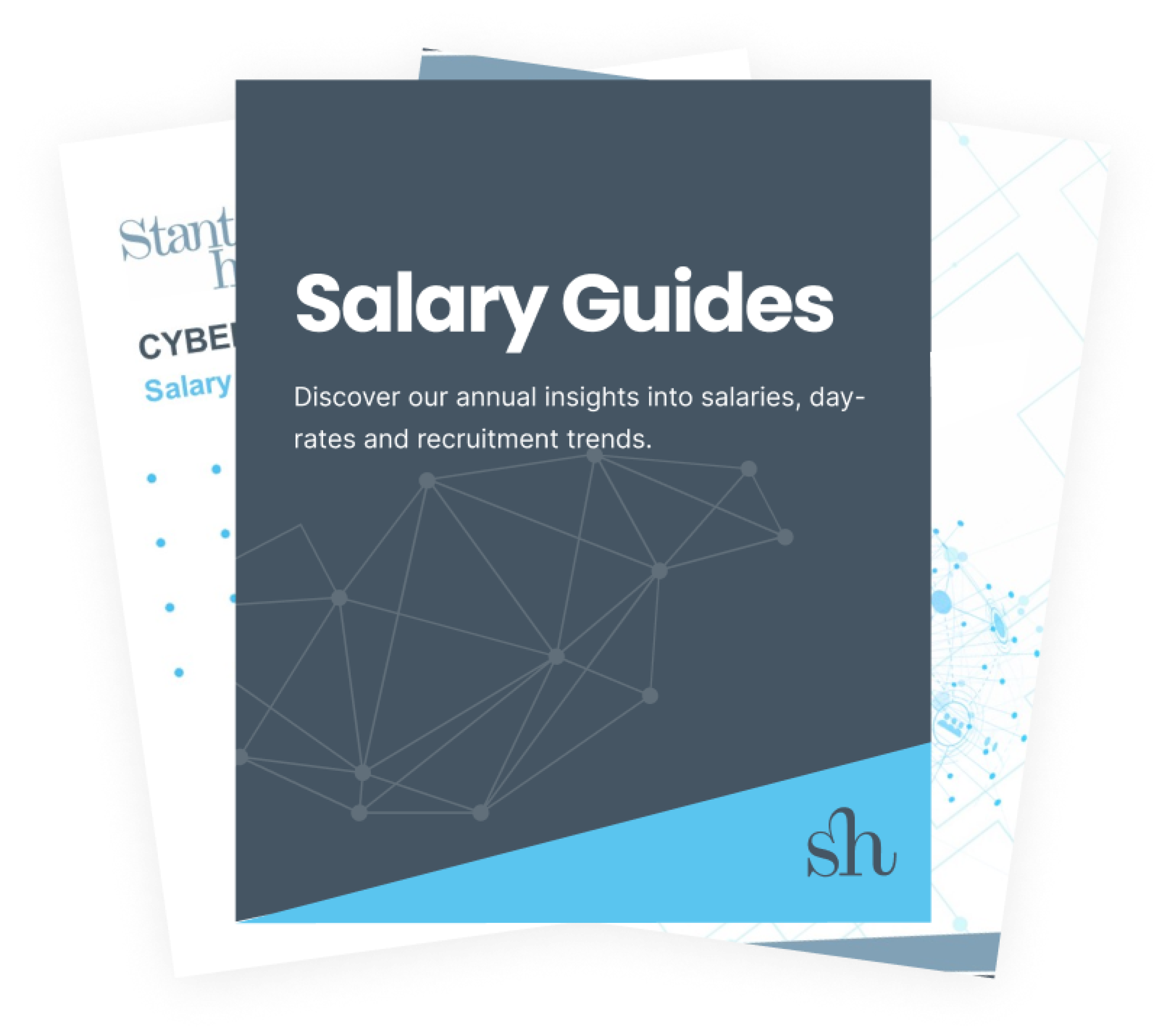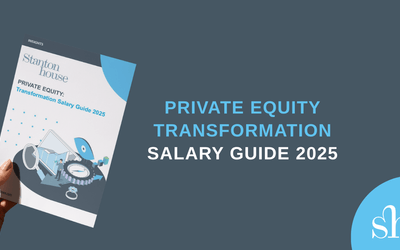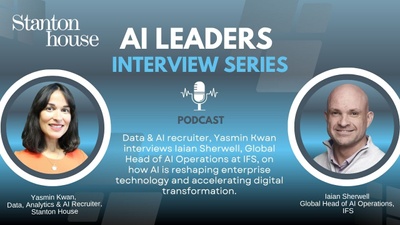

Finance Transformation Recruiting Trends 2021
Different industries and businesses will have had their unique challenges and will have been impacted differently by Covid-19. Everything from changes to product demand and stretched supply chains through to a complete loss of custom.
In order to survive and indeed succeed, business leaders have had to go beyond cost saving strategies and look at how they can quickly and fundamentally transform their systems, processes and people.
For finance leaders this has meant gearing transformation towards process restructuring for efficiency gains, streamlining processes for cost effectiveness, and the accurate, timely reporting of revenues and cost base.
Finance transformation jobs in demand
So, as CFOs re-set priorities amidst ongoing economic uncertainty in 2021 – what roles, expertise and skills do employers need and want from finance transformation professionals this year?
1. Revenue recognition & reconciliation
Never has the accurate and timely reporting of revenues and costs been so important for the CFO. The accurate interpretation of financial data is essential for providing the foresight needed to inform strategic decision-making in these unprecedented times.
As such, the record to report (R2R) accounting process which provides strategic, financial and operational feedback on the performance of an organisation, to inform senior management, is under much scrutiny. We are seeing that the implementation of reconciliation tools such as Blackline is becoming increasingly commonplace, particularly within FTSE 100 businesses.
As many of you will be familiar with, Blackline automates and standardises the reconciliation process to produce high-quality and accurate financial statements. It drives accuracy in the financial close by providing accountants with a streamlined method to verify the correctness and appropriateness of their balance sheets - providing CFOs with increased confidence and control. Blackline fast became one of the most frequently implemented financial tools in 2020 and shows no sign of slowing down this year. Professionals with reconciliation tool implementation experience such as Blackline will be highly sought after in 2021.
2. Enterprise performance management
In addition to the bottom line, finance leaders need to know exactly what is going on within their organisation in order to guide strategic decision-making. Understanding where and what is bringing in the most revenue is paramount for effective resource allocation and investments in technology and talent.
As such, the improvement of performance reporting is an on-going focus for finance leaders as they seek to accelerate and help C-Suite decision-making. Finance transformation specialists with analytical and business partnering skills along with experience of Enterprise Performance Management (EPM) / Management Information (MI) reporting tools such as Power BI, Onestream, Anaplan will be in high demand this year.
3. Corporate transactions
The second half of last year saw a lot of corporate activity within the mergers and acquisitions space which has shaped the landscape for 2021. Many companies that were lucky enough to become cash rich were able to get company deals at a good price.
As a result, we have seen an increase in finance transformation activity and an increase in demand for corporate finance and integration M&A professionals. Specifically, Transition Managers with integration of acquisitions experience to effectively integrate processes, systems and people into the buyer company.
4. Process optimisation & cost reduction
Organisations are increasingly looking at efficiency and process optimisation to a much greater extent - rather than relying on large technological ERP transformations.
Businesses are now seeking efficiency gains which are driven by LEAN processes and Agile delivery mechanisms, rather than huge system change. Where organisations are already underway with an ERP project implementation, the goals have now shifted to not just being a technical change solution but also to finding efficiencies through the ERP implementation itself. As such, finance transformation professionals that can work process efficiency goals into existing transformation programmes will remain a priority this year.
Unsurprisingly, cost challenges brought about by the impact of Covid-19 have resulted in another shift of focus, not only to improve process efficiency - but also to reduce costs.
We have seen transformation in finance go back to earlier days when ‘transformation’ was coined to mean cost improvement activity and the optimisation of processes, rather than the big-ticket ERP implementations that we have seen in recent years. The whole area of finance transformation seems to have taken a step back – CFO’s are now asking, ‘how do we reduce the cost of operations and take the cost out of finance to self-fund the transformation we need?’
As a result, we may well see an increase in businesses engaging specialist recruitment consultancies such as ourselves to provide project teams through Statement of Work (SoW) delivery models, rather than the costly Big 4.
5. Centralisation of finance
The need for cost reduction is also driving the need to simplify organisational layers through the centralisation of the finance function.
Due to depressed market conditions, there has been a levelling of the job market and pay packages for Accounts Payable (AP) and Accounts Reconciliation (AR) professionals around the globe. As such, many organisations are considering centralisation of their shared service models, favouring on-shore in the UK, or near-shore in Europe - rather than off-shore in India.
Subsequently, we are likely to see more Global Process Ownership (GPO) roles this year. These leaders will be tasked with centralising and owning these processes end-to-end across all international business units and developing Hubs / Centres of Excellence.
6. Enterprise Resource Planning (ERP)
The ERP leaders and CIOs that we speak to all concur, that in this new era of work, ERP implementations will need to have objectives and milestones which align to greater process efficiency gains.
Sponsors of existing programmes are being far more selective in their approach to recruiting key transformation expertise, only bringing external resource when absolutely needed and only if an internal resource cannot be found.
While we will continue to see a lot of ERP activity in the SAP S4 Hana arena, due to thousands of licenses that have already been purchased, it is more likely we will see a widespread focus on the other aforementioned areas - process optimisation, cost reduction and centralisation. Whilst we will see some large ERP implementations this year, it is unlikely that we will see an extensive amount of new £50m-£100m ERP programmes that will need to be resourced in 2021 - but rather we will see investment in operating model restructure and organisational re-design.
Microsoft Dynamics 365 is also continuing to increase market share as key ERP players. Microsoft are of course, pushing to have all their products and services into a single platform and from a compatibility perspective, integrating Dynamics 365 into an existing technology estate, makes sense for many businesses.
Target Operating Model (TOM)
No matter the industry sector, or size of organisation, increased remote working and changing consumer habits have forced most businesses to pivot and rethink their strategy and operating model. Often, survival has meant a rapid transformation of people, processes and systems to ensure business continuity and to operate effectively in the ‘new norm’.
This means, that in most cases and across most sectors, a change in business strategy is required -and most likely a change in Target Operating Model (TOM) with associated Organisational Design and Development (OD&D) to deliver that strategy.
It is clear that the need for organisations to define and deliver new operating models and re-design how their services are delivered for lower cost and / or greater effectiveness will be of great importance this year. For finance transformation this often means the centralisation of the finance function to operate more efficiently at a lower cost.
As such, we are seeing an increased demand for finance transformation professionals with Target Operating Model (TOM), Organisational Design & Development (OD&D) and Change Management skillsets.
Top finance transformation jobs 2021
Here’s our list of the top finance transformation jobs we foresee for 2021:
1. Target Operating Model (TOM) Design Leaders
2. Global Process Owners (GPO)
3. Transition Project Managers, SSC
4. FP&A Managers and Process Improvement
5. Enterprise Performance Management (EPM) System Experts
6. Corporate Finance, M&A Experts
7. Project Managers of Acquisitions / Integrations
How can we help?
If you are job searching in these difficult times, and potentially interviewing from home, there are lots of things we can help you with to prepare. We have plenty of career advice guides we can share with you. Everything from CV tips, to developing your personal online brand and video interviewing advice. If you would like any of our career advice guides, or want to discuss any of our current interim or permanent senior finance opportunities with a recruiting expert please do not hesitate to get in touch.


















